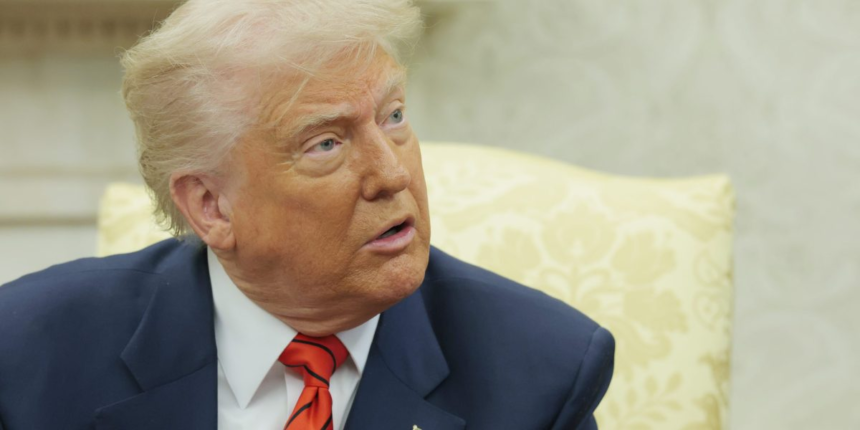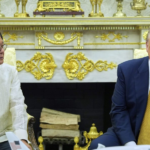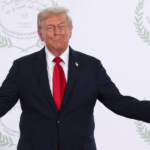The threatened pharmacy tariffs of 25%, he added, are likely to be delayed until after the 2026 mid-terms.
Previously, Goldman had expected the effective tariff rate to sit at around 14% in 2025, but now see it sitting nearer 20% by next year. Of course, this doesn’t fit with the Treasury Secretary’s notion that tariffs will have little impact on the economy, but rather that the outcome will not be as sharp as analysts had feared in the early days of Trump 2.0.
He wrote: “One reason why President Trump might raise tariffs further is that the costs of the trade war have been smaller than anticipated so far. At least as far as inflation is concerned, however, we think this mostly reflects lags related to large-scale inventory building before the tariffs hit. For the earliest Trump tariffs, these lags have now run their course.”
Per Goldman’s estimates, 60% of the ramifications from the tariffs implemented in February had worked their way through the economy by June, raising core inflation by 0.2%. A further 1.2% raise is yet to come, added Hatzius, putting PCE (Personal Consumption Expenditures) over 3%.
While the hike will be painful for real disposable income, Goldman added, it still expects the tariff fallout will exhibit as a “one-time price level shift akin to a VAT hike” as opposed to a continual erosion of spending power.
With the S&P 500 up some 4.6% this month, it seems markets have are far less sensitive to the White House’s back-and-forth, perhaps relying on the “TACO trade” (Trump Always Chickens Out) to live on.
This in itself presents a problem, writes Deutsche Bank’s Henry Allen in a note shared with Fortune recently. After all, if the economy is fairing well then it may give the president the confidence to push ahead with his threats. “On tariffs, it’s clear that markets aren’t pricing in the proposed August 1 rates,” Allen writes. “But the paradox is that as markets discount the tariffs and perform strongly, that’s actually making the higher tariffs more likely as the administration grow in confidence.”
Indeed, Macquarie strategists Thierry Wizman and Gareth Berry wrote in a note Monday that even if Trump pushes ahead with his agenda, it doesn’t mark the end of the story. They wrote: “While the August 1 date is critical insofar as it will help prove out whether U.S. President Donald Trump ‘chickens out’ again, it is not a ‘point of no return’, insofar as negotiations will likely continue beyond that date even if new tariff rates are imposed (e.g., 30% for Europe).
“It is because August 1 is unlikely to be a ‘point of no return’ that stock markets have been largely unfazed by the approach of August 1, we believe. Nothing that ‘happens’ on August 1 is necessarily permanent, so long as the U.S. administration remains willing to talk, as was indicated in Trump’s letters from two weeks ago.”









